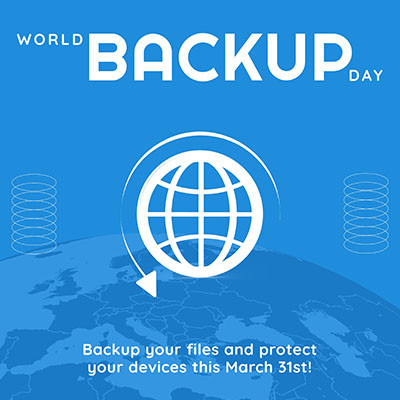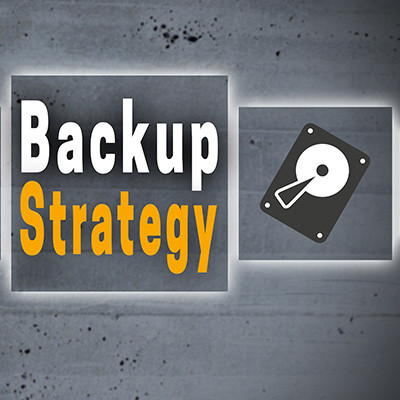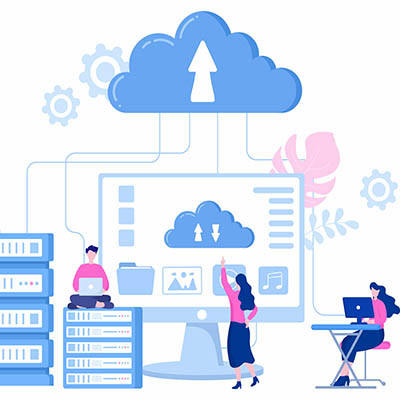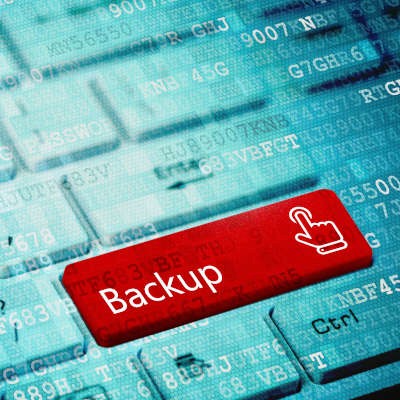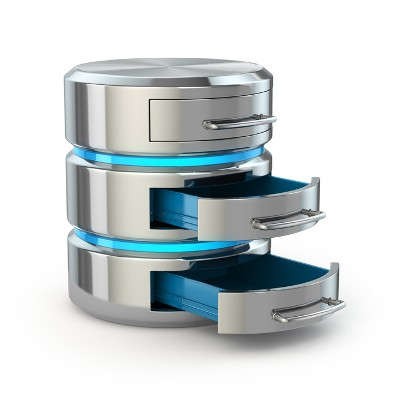To keep your business running smoothly, even if something goes wrong—like a power outage, cyberattack, or other disaster—you need a reliable way to protect your data. That’s where data backup comes in. It’s important to make sure your backup is thorough and trustworthy so you can recover if things go south.
k_Street Consulting, LLC Blog
Other than the innovative jump from tape, data backup hasn’t seen too many great leaps forward, so to speak. Sure, businesses don’t have to worry about resource-intensive manual backups anymore, but the standard approach is so rock-solid that innovation isn’t necessarily needed at this point. Today, we are exploring the backup and disaster recovery process and how modern-day solutions have made an effective tool even better.
Nostalgia is a powerful force. It can drive us to look to the past for things we once loved, such as the music we listened to over the years. However, what if the music you loved was lost forever?
This could be the case for many, as older hard drives that archive this music have been discovered to have failed. Let’s examine the situation to see what lessons any small-to-medium-sized business can learn.
Business can get messy, particularly when variables outside your control are involved, which could spell doom for your organization. We’re talking, of course, about instances where your organization might be under a particularly large threat—instances where your data is at risk, which could jeopardize your future. Thankfully, there are options to mitigate this risk.
The growth that digital storage has seen over the past several decades is immense. In that time most data has been stored on hard disk drives (HDD). Now with solid-state drives (SSD) being more affordable than ever, it’s no surprise that most computers are preferring this faster and less fragile model. Today, we wanted to highlight that fragility and try to expose some variables that help you tell if your HDD is about to fail.
The one thing about data backup is that it seems like it is pretty simple: You have data, you copy it and store it should something happen to your original. Sure, that’s the basic makeup of a data backup, but if you want a backup you can really rely on, you need it to be faultless. Enter Backup and Disaster Recovery.
Friday, March 31, 2023, is World Backup Day, the annual observance set aside to help ensure that businesses and individual users alike are doing what they need to do to protect their data from loss. Let’s go over where this observance came from, why it is so important for your business, and how you can make sure your organization is as protected as possible.
We are of the firm belief that data backup is crucial to the continued success of any business. It can be the differentiating factor for a business that is successful and one that less unfortunate circumstances knock them off the grid for good. You can invest in your business’ future with a solid data backup solution, even if it’s there simply as a preventative measure.
How seriously does your business take data backup and disaster recovery? You might not be able to predict the future or what might occur, but you can at least prepare for it to mitigate the damage it could potentially bring about. Today, we want to share some of the best practices you can implement to combat even the worst disaster scenarios your organization might encounter.
Look, nobody likes picturing the worst-case scenario that could befall their business—even doing so might feel a bit like memorizing a divorce attorney's number as you write your wedding vows. However, failing to have some strategy in place could very well lead to your business’ downfall. What does it take to properly plan and prepare for the possibility of a disaster, and the associated recovery you’ll have to undergo?
We are consistently adamant that businesses have a comprehensive data backup strategy to help secure its operational continuity. The threat environment in which we find ourselves at the present time only reinforces the importance of such a backup strategy. This month we thought we’d take a few minutes to review what makes a business’ backup platform comprehensive.
Novelty holidays have been all the rage for the past couple years. The thing is that if you are going to celebrate World Kimchi Day on November 22 or its sister holiday, World Cabbage Day on February 17, you either really like cabbage, or you really like holidays. With so many people using technology as a major part of their life and business, it’s no surprise that it is well represented on the holiday calendar. You have a few we’ve already missed: National Technology Day on January 6, Data Privacy Day on January 28, and National Clean Out Your Computer Day on February 8, but there are three important IT “holidays” this month. Let’s take a look at them now.
With a business’ data being such a priority nowadays, protecting it against all circumstances needs to be appropriately attended to. One fundamental component of this protection is the implementation of a proper backup strategy. Let’s go over the most foundational element of a successful backup, and how we recommend businesses to accomplish it: redundancy.
In business, the more time your operations stutter, the more it costs. If downtime is extended, it can cause some serious problems for your business. This is true from the one-man band to the largest enterprise. This month we thought we would outline a couple ways that downtime can have a negative effect on your business aside from the obvious.
We’re halfway through the year, and I don’t think anyone expected 2020 to go the way it has. Many business owners are being extra cautious about their spending and doing what they can to prevent unexpected interruptions to their business. One costly interruption all businesses need to continue to prevent is data loss.
When we start working with a new client, we’re often left surprised at their data backup and recovery strategy. It’s not always that they don’t really have a strategy for it (although this happens more than we’d like to admit), it’s just how sure many of them are that they don’t need to spend a lot of time and effort on it. This ambivalence is a major mistake that often leads to hardship. Today, we will talk a little bit about why backup is such a big deal.
Many businesses are capitalizing on the vast amount of benefits Managed IT services can bring to the table. These service providers are able to assist your business in obtaining, and managing the technology that you rely on. Working with one of these providers can help your business simplify data management practices, as well as make them much more secure. Today we will go over how they are able to do so.
While it would be nice, not all troubles concerning your data are resolved once a disaster has passed - even if you have a strategy in place. There’s still the matter of having the right strategy, and having it configured correctly. Here, we’ve listed a few considerations you should take regarding your backup (preferably before you need it) to make sure you’re properly prepared.
Disasters are commonplace in the business environment, especially when you work in a technology-heavy office. It’s not a question of if you’ll ever experience a hardware failure; it’s a question of when you will. Regardless of how your business functions or what sector you fall into, there will always be disasters that you should be prepared for.
Is your organization still relying on antiquated tape backup to keep your data safe? A more reliable, less time-consuming alternative known as image-based, or “snapshot” backup, could change the way that you look at disaster recovery. In fact, image-based backup has the potential to optimize your business’s data continuity.
It’s every business owner’s worst nightmare; they wake up to find out that their entire data infrastructure has been wiped out by some unexpected natural disaster or hacking attack. The only way to guarantee that your business’s future remains intact is to have some sort of data backup and recovery system, just in case of the worst.
Let’s say that you are a consumer looking to take advantage of data backup in an affordable way. You want a way to keep your data safe in the event of a disaster. For the average PC user, Google Drive now allows users to take backups of specific files and folders via the Backup and Sync application on their desktop PC.
Running a business requires the ability to stay in control, especially when others couldn’t. However, there are some situations--like major weather events--that simply will not be controlled. In cases like these, you need to make sure your business is prepared to withstand the worst. A business continuity plan can help you do so.
You literally never know when your data may be lost. It may be frightening to consider, but there are so many factors that could lead to you losing your data, ranging from an act of nature to user error. To counter this, you need to make sure your backup solution meets certain requirements. Today, we’ll review those requirements.
March 31, 2018 is World Backup Day. Data is a commodity, but unlike other commodities--it can be replicated without hurting its value. As a result, data backup has become a critical need for the modern business. World Backup Day has been created to remind people to protect their assets by backing up their files.
If you were to lose your business’ data, would you be able to continue operations? The answer is almost always “no,” so you need to take precautions before you inevitably suffer from an unpredictable threat like a hardware failure or hacking attack. Unfortunately, the average small business might have trouble affording such comprehensive coverage, which is a trend that we’re trying to help local organizations buck. If you’re stuck on data recovery, we want to help you better understand data redundancy.
Thankfully, natural disasters like floods and tornadoes are rare. However, there are plenty of other threats that are much more prominent, and they can strike at any time. This makes it dangerous to be complacent about your company’s business continuity plan, especially since you have no way of predicting these events ahead of time. This forces you to have the mindset of “If not now, when?”
“It won’t happen to me.” This is a common excuse amongst business owners who refuse to equip their network with a comprehensive data backup and recovery solution. They may feel like they’re careful enough to avoid a major data loss-causing disaster. Yet, the inconvenient fact remains that a disaster can happen to any business, no matter how prepared they may be.
As well-prepared as you might believe your business may be against disasters, the reality is that this is not always the case. In truth, you have no idea when you could fall victim to a data loss incident. As a business owner, you need to understand that it’s not a question of if you’ll experience a data breach, but when, and you need to be prepared for anything.
Businesses are volatile entities that can change drastically at any given moment. All it takes to eliminate data and cause disaster is an unexpected natural disaster, like a flood or fire, or a hardware failure that wipes out mission-critical data. The fact remains that your organization could face significant downtime from data loss, and the future of your business could hang precariously in the mix.
A data loss incident is considered a major disaster scenario, especially for small and medium-sized businesses. All it takes is one moment to lose your business’s entire data infrastructure. We’ll walk you through a story that should serve as a cautionary tale, one that hopefully teaches you to adhere to data backup and disaster recovery best practices.
 You understand that the Recycle Bin is the place where deleted files go, and you know that emptying the Recycle Bin is how you dispose of files that you no longer need. What you might not know is that emptying your Recycle Bin does not guarantee that your files are gone at all, and that they’re probably still available on your PC.
You understand that the Recycle Bin is the place where deleted files go, and you know that emptying the Recycle Bin is how you dispose of files that you no longer need. What you might not know is that emptying your Recycle Bin does not guarantee that your files are gone at all, and that they’re probably still available on your PC.
 March 31st is World Backup Day! This occasion begs the question, “How much thought have you put into where your data is stored?” If you haven’t thought through your data storage options, then your files may be located in several different places. This could make accessing your data difficult, as well as jeopardize your network’s security. To get you started, let’s take a look at these four data storage options.
March 31st is World Backup Day! This occasion begs the question, “How much thought have you put into where your data is stored?” If you haven’t thought through your data storage options, then your files may be located in several different places. This could make accessing your data difficult, as well as jeopardize your network’s security. To get you started, let’s take a look at these four data storage options.
 Your business relies on constant access to its data and information systems in order to maintain operations. Businesses that become victims of data loss disasters and are unable to recover their data, will more likely than not go out of business within one year of the incident, making it more important than ever to ensure that you have a plan in the event of the worst-case scenario. Would your business be able to get back on its feet following a data loss disaster?
Your business relies on constant access to its data and information systems in order to maintain operations. Businesses that become victims of data loss disasters and are unable to recover their data, will more likely than not go out of business within one year of the incident, making it more important than ever to ensure that you have a plan in the event of the worst-case scenario. Would your business be able to get back on its feet following a data loss disaster?
 Technology, while a great asset that can be leveraged for your benefit, can also frighten businesses due to how unpredictable it can be at times. The constant threat of data loss, identity theft, and hardware failure can cripple your business’s ability to retain operations. Specifically, businesses can learn about risk management by analyzing the processes used by an industry where risk management is absolutely critical: nuclear power plants.
Technology, while a great asset that can be leveraged for your benefit, can also frighten businesses due to how unpredictable it can be at times. The constant threat of data loss, identity theft, and hardware failure can cripple your business’s ability to retain operations. Specifically, businesses can learn about risk management by analyzing the processes used by an industry where risk management is absolutely critical: nuclear power plants.
 One of the most valuable assets of your business is its data. Hackers know this; it’s why they choose to go after those who fail to protect their information. Without your data, you’ll lose valuable time and expenses that can potentially result in the complete and total destruction of your business. This is why it’s so crucial that your organization understands how to integrate a proper data backup solution that optimizes business continuity.
One of the most valuable assets of your business is its data. Hackers know this; it’s why they choose to go after those who fail to protect their information. Without your data, you’ll lose valuable time and expenses that can potentially result in the complete and total destruction of your business. This is why it’s so crucial that your organization understands how to integrate a proper data backup solution that optimizes business continuity.
 There are few things more important than the continuity of your business. Your livelihood, and that of your employees, depends on the continued functionality of your organization. Therefore, it becomes necessary to do all that you can to ensure your business is protected from an unexpected downfall, due to data loss, natural disasters, and other means.
There are few things more important than the continuity of your business. Your livelihood, and that of your employees, depends on the continued functionality of your organization. Therefore, it becomes necessary to do all that you can to ensure your business is protected from an unexpected downfall, due to data loss, natural disasters, and other means.
 We live in a society where everything is always growing more powerful, and in turn, everything grows more complex. Nowhere is this more true than the technology industry. It’s easy to lose track of how much new technology you’ve added to your IT infrastructure over the years, but you know what they say; the more basic your infrastructure is, the better, for the sole purpose that it becomes much easier to maintain and manage. That said, redundancy actually makes things easier on your business continuity plan, instead of complicating it.
We live in a society where everything is always growing more powerful, and in turn, everything grows more complex. Nowhere is this more true than the technology industry. It’s easy to lose track of how much new technology you’ve added to your IT infrastructure over the years, but you know what they say; the more basic your infrastructure is, the better, for the sole purpose that it becomes much easier to maintain and manage. That said, redundancy actually makes things easier on your business continuity plan, instead of complicating it.
 September was National Disaster Preparedness Month, and as such, it’s important to consider the state of your business’s current backup and disaster recovery practices. Different disasters pose various threats for your organization, but many of them have one thing in common: they’re going to ruin your physical IT infrastructure, and, depending on your backup practices, could potentially bring down your entire operational infrastructure.
September was National Disaster Preparedness Month, and as such, it’s important to consider the state of your business’s current backup and disaster recovery practices. Different disasters pose various threats for your organization, but many of them have one thing in common: they’re going to ruin your physical IT infrastructure, and, depending on your backup practices, could potentially bring down your entire operational infrastructure.
 When you store your data in the cloud, you assume it will be safe and that nothing bad will happen to it. But what if the real clouds hovering above your virtual cloud are literally full of lightning? Google experienced this last month when one of its data centers in Belgium fell to the wrath of Zeus.
When you store your data in the cloud, you assume it will be safe and that nothing bad will happen to it. But what if the real clouds hovering above your virtual cloud are literally full of lightning? Google experienced this last month when one of its data centers in Belgium fell to the wrath of Zeus.
 As a business, the data that you collect from both your employees and your clients is absolutely essential to the day-to-day operations of your organization. If your company were to lose all of its data in an instant, what would it result in; a fallout of downtime, or a quick recovery that hardly costs your organization a few minutes?
As a business, the data that you collect from both your employees and your clients is absolutely essential to the day-to-day operations of your organization. If your company were to lose all of its data in an instant, what would it result in; a fallout of downtime, or a quick recovery that hardly costs your organization a few minutes?
 While there are several options your business has for a backup solution, how much thought have you really put into it? As one of the most mission-critical functions of your IT infrastructure, you need to be sure that you’re getting the best solution for your money. More importantly, you need to know that you can rely on your solution to get you through the most trying times, like after a disaster or data theft.
While there are several options your business has for a backup solution, how much thought have you really put into it? As one of the most mission-critical functions of your IT infrastructure, you need to be sure that you’re getting the best solution for your money. More importantly, you need to know that you can rely on your solution to get you through the most trying times, like after a disaster or data theft.
 Coming up with new solutions constantly can put a strain on your business. This can take up a significant amount of time, and before you know it, implementing revolutionary ideas meant to improve efficiency can get in the way of your day-to-day operations. Wouldn’t it be nice to integrate a complete solution in a quick, all-inclusive package?
Coming up with new solutions constantly can put a strain on your business. This can take up a significant amount of time, and before you know it, implementing revolutionary ideas meant to improve efficiency can get in the way of your day-to-day operations. Wouldn’t it be nice to integrate a complete solution in a quick, all-inclusive package?
 We’ve all had days where our office is bustling with activity and everyone is producing a desirable amount of work. These kinds of days are what make being a business owner so fulfilling. This fulfillment, however, can be replaced with panic and discord in a heartbeat. All it takes is a disaster or hardware failure to bring down your entire operational infrastructure. Thankfully, all it takes to make a disaster a minor inconvenience is to be proactive about disaster recovery.
We’ve all had days where our office is bustling with activity and everyone is producing a desirable amount of work. These kinds of days are what make being a business owner so fulfilling. This fulfillment, however, can be replaced with panic and discord in a heartbeat. All it takes is a disaster or hardware failure to bring down your entire operational infrastructure. Thankfully, all it takes to make a disaster a minor inconvenience is to be proactive about disaster recovery.
 A business owner knows how important data backup is, but they might not have the time or knowledge to seek out the best solution for their business. Unfortunately, disasters can happen when you least expect it, and this unpredictability holds the future of your company hostage. Before jumping into a particular backup solution, think about where your business currently stands, and what options you have available to you.
A business owner knows how important data backup is, but they might not have the time or knowledge to seek out the best solution for their business. Unfortunately, disasters can happen when you least expect it, and this unpredictability holds the future of your company hostage. Before jumping into a particular backup solution, think about where your business currently stands, and what options you have available to you.
 Internet users today are a little spooked, and for good reason. Stories of major hacks seem to perpetually be in the headlines. A hack attack can lead to stolen or compromised data, which is why backing up data is a crucial piece of every business continuity plan. For this purpose, World Backup Day 2015, March 31st, is an important day.
Internet users today are a little spooked, and for good reason. Stories of major hacks seem to perpetually be in the headlines. A hack attack can lead to stolen or compromised data, which is why backing up data is a crucial piece of every business continuity plan. For this purpose, World Backup Day 2015, March 31st, is an important day.
 As you are well aware, your business’s data is one of its most treasured assets. It could be gone in the blink of an eye if you aren’t careful in defending it. If an unexpected hardware failure or power outage were to occur, would your business be able to bounce back with minimum downtime and without any data loss? Businesses must always be aware of the importance of data backup, especially in the technology age where personal or sensitive information can easily be stolen or destroyed by a seasoned hacker.
As you are well aware, your business’s data is one of its most treasured assets. It could be gone in the blink of an eye if you aren’t careful in defending it. If an unexpected hardware failure or power outage were to occur, would your business be able to bounce back with minimum downtime and without any data loss? Businesses must always be aware of the importance of data backup, especially in the technology age where personal or sensitive information can easily be stolen or destroyed by a seasoned hacker.
 IT professionals will always talk about the importance of data backup, and why shouldn’t we? It is a crucial process each business owner should understand. It really comes down to this: Many of the IT services we provide can present your endeavor with value, but only one of them can perform miracles, the Backup and Disaster Recovery (BDR) solution. The BDR not only allows for redundant backup of the files you need most, it provides a solution for your business to continue to exist in the face of pure devastation.
IT professionals will always talk about the importance of data backup, and why shouldn’t we? It is a crucial process each business owner should understand. It really comes down to this: Many of the IT services we provide can present your endeavor with value, but only one of them can perform miracles, the Backup and Disaster Recovery (BDR) solution. The BDR not only allows for redundant backup of the files you need most, it provides a solution for your business to continue to exist in the face of pure devastation.
 Owning and running a business means that you have to be good at making and implementing plans. Every business owner has this skill, but there's one aspect of planning that often gets overlooked--testing. It's easy to skip testing because of the amount of time it takes, but it's necessary to ensure success. The clearest picture of this is with data recovery.
Owning and running a business means that you have to be good at making and implementing plans. Every business owner has this skill, but there's one aspect of planning that often gets overlooked--testing. It's easy to skip testing because of the amount of time it takes, but it's necessary to ensure success. The clearest picture of this is with data recovery.
 Do you know what to get Dad this Father's Day to show him that you appreciate all that he's done for you? If he's a business owner, we have the perfect gift for him!
Do you know what to get Dad this Father's Day to show him that you appreciate all that he's done for you? If he's a business owner, we have the perfect gift for him!
That's right - k_Street Consulting's managed IT services! We don't mean buy them outright for him, but by suggesting our services to him, you can give him the greatest gift of all: peace of mind and a whole lot more cash in his pocket. Here are four good reasons to outsource Dad's IT services.
 It's been fifteen years since the Y2K incident had the world embroiled in panic. It was said that at the turn of the century, on New Year's Eve, all computers in the world would reset their dates to 1900 rather than 2000, as the way data was stored would only allow for two-decimal digits. Therefore, 1970 would be stored as "70". Many programs weren't able to recognize the difference between 1900 and 2000, and some would try to represent the year 2000 as 19100, which could have led to complete failure of data and incorrect results, as well as the collapse of a crucial technological infrastructure. Obviously, none of this happened, and New Year's Eve passed without the collapse of human society as we know it, but do you know why it didn't happen?
It's been fifteen years since the Y2K incident had the world embroiled in panic. It was said that at the turn of the century, on New Year's Eve, all computers in the world would reset their dates to 1900 rather than 2000, as the way data was stored would only allow for two-decimal digits. Therefore, 1970 would be stored as "70". Many programs weren't able to recognize the difference between 1900 and 2000, and some would try to represent the year 2000 as 19100, which could have led to complete failure of data and incorrect results, as well as the collapse of a crucial technological infrastructure. Obviously, none of this happened, and New Year's Eve passed without the collapse of human society as we know it, but do you know why it didn't happen?
 Have you ever thought about how much your data is worth? If you ask a company to put a price tag on their data, they probably won't be able to. After all, how can you put a price on something so valuable? You'll find that something as irreplaceable as your information is simply priceless. However, it doesn't have to be.
Have you ever thought about how much your data is worth? If you ask a company to put a price tag on their data, they probably won't be able to. After all, how can you put a price on something so valuable? You'll find that something as irreplaceable as your information is simply priceless. However, it doesn't have to be.
 As with anything else that's deliberately taken from you, having your smartphone stolen can be one of the most frustrating experiences ever. After all, many of us use them to keep us on point with our daily tasks. Measures are being taken by legislators and cell phone companies to help curb the issue, but there are ways that you can prevent and react to your phone being stolen.
As with anything else that's deliberately taken from you, having your smartphone stolen can be one of the most frustrating experiences ever. After all, many of us use them to keep us on point with our daily tasks. Measures are being taken by legislators and cell phone companies to help curb the issue, but there are ways that you can prevent and react to your phone being stolen.
 Your company's data is extremely valuable, which is why you have security measures in place in order to keep hackers out of your network. Although, it's easy to spend so much time focused on your network firewall that sometimes, securing your backed-up files gets overlooked. In the hands of a hacker, the copies of your backed up data can be just as valuable as breaching your network.
Your company's data is extremely valuable, which is why you have security measures in place in order to keep hackers out of your network. Although, it's easy to spend so much time focused on your network firewall that sometimes, securing your backed-up files gets overlooked. In the hands of a hacker, the copies of your backed up data can be just as valuable as breaching your network.
 You've heard it said that data is your business's most valuable asset. This is because it's virtually impossible to keep an operation going without it. Therefore, it's vital to have a data backup solution for your organization. There are different levels of data backup; you will want to pick one that's right for your business.
You've heard it said that data is your business's most valuable asset. This is because it's virtually impossible to keep an operation going without it. Therefore, it's vital to have a data backup solution for your organization. There are different levels of data backup; you will want to pick one that's right for your business.















